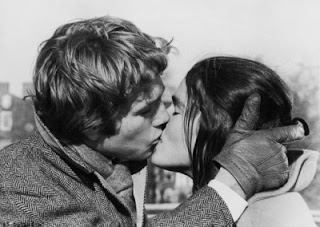" Love means never having to say you're sorry"
Erich Segal
INTRODUCTION:
In the novel “Love Story” written by American author Erich Segal the life of two college students who fall in love with each other is described. The main characters of the narrative are Oliver Barret and IV and Jennifer Cavilleri. Oliver Barret a student of Harvard College, rich, smart and an outstanding hockey player falls in love with Jennifer Cavilleri who plays music and is poor. They come from two different worlds; Oliver is the son of the most important family in region, while Jennifer is the only child in the family whose mother died when she was young. They get married and cherish every single moment of their marriage but at the end one of the main characters dies. There would be no much time to enjoy the life together.
Chap. 1-7:
The story begins with Oliver telling readers about the death of his wife, saying “What can you say about a twenty-five-year-old girl who died?” I wonder why the story starts in this way. I think the author wanted to inform us that one of the main protagonists of the novel dies without mentioning the reason why the girl dies. In this way the author grabbed our attention right at the beginning of the story. Finally we read a love story in class. We were back then in 1970s where everything seems to be in a way complicated for two people to fall in love. Even though the protagonist of the story have different social classes, they still fall in love with each other. Everything happens in Radcliffle library when Oliver goes to borrow a book. There he meets the beautiful Italian-American girl called Jennifer and immediately falls in love with her. Even though she says to him "I would not go for coffee with you", she ends up having coffee with Preppie (Oliver). While they were having coffee they introduce their selves. Jennifer tells Oliver that she is a pianist, while Olivers tells her that he plays hockey. I think their love begins when Oliver asks Jennifer why she is staying with him even though he is a loser. She says to him "I like your body". Then, Oliver invites her in the Dartmouth hockey game because he will be playing. After the game, Oliver and Jenny go for a walk where he kisses her. He says to her that he will not call her because he want to see if Jenny cares about his call. Immediately, Jenny asks why, Oliver says that he will call her as soon as he gets home.










